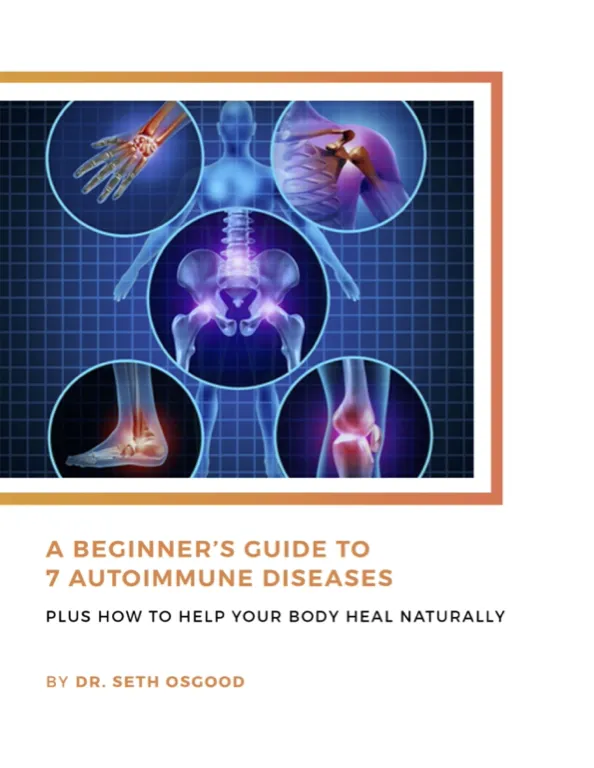Hormone imbalances can feel like being on a rollercoaster, your body and emotions are all over the place and it seems like you have no control over the situation.
If you suspect your hormones may be taking you for a ride, there are a few things you need to know, including the signs and symptoms to look for, how to get the right testing, and how to balance your hormones naturally.
(A quick note that we’re focusing specifically on sex hormones in women in this article. Of course, men can have hormonal imbalances as well, but I’ll save that topic for another day.)
12 Signs of a Sex Hormone Imbalance
Here are 12 signs you may be dealing with a sex hormone imbalance.
- Brain fog & fatigue
- Weight gain
- Fatigue
- Mood swings, anxiety, or depression
- Low libido (sex drive)
- Hot flashes
- Dry skin & vaginal dryness
- Hair loss
- Heavy, irregular, or painful periods
- Chronic headaches
- Chemical sensitivities
- Insomnia
Getting the Right Hormone Testing
If you think you may have a hormonal imbalance it’s key to get comprehensive testing that looks at all of your sex hormone levels and metabolites, along with stress hormones that may be impacting them.
In my experience, the gold standard for hormone testing is the DUTCH Plus™. It’s my go-to for assessing both sex hormones and stress hormones in women and men.
This functional lab test is a dried urine analysis and it provides much more in-depth information than conventional saliva and blood tests. However, it only requires one collection so it’s much more convenient and less susceptible to collection error than a 24-hour collection.
It measures progesterone, estrogens, androgens, cortisol, cortisone, and DHEA, along with nutritional markers related to hormones and neurotransmitters.
This test also shows if you’re breaking down estrogen into healthy metabolites or inflammatory metabolites that cause oxidative stress, cell damage, and increase your risk for breast cancer.
If you want to learn more about everything analyzed in this test and how we can use that information to help restore your health, check out this video.
If you do uncover a hormone imbalance your next question is likely, what’s the best treatment option so I can start feeling like myself again?
Conventional Medicine’s Approach to Hormone Imbalances
Conventional medicine’s answer for most hormone imbalances is synthetic hormone medications in the form of birth control pills or HRT, hormone replacement therapy, prescribed as pills, patches, gels, or creams.
However, these medications can increase your risk for reproductive cancers, heart disease, and liver toxicity. They can also disrupt thyroid dysfunction and lead to Candida overgrowth.
Moreover, they do nothing to actually address the underlying cause of the imbalance and instead leave you dependent on potentially harmful pharmaceuticals.
It is also important to note that balanced hormones are essential for various aspects of your health from supporting your immune system and preventing cognitive decline to having a comfortable and healthy sex life.
Hormone Replacement Therapy is a treatment we will utilize in some women with amazing results. But you want to make sure the hormones are Bioidentical which means they are structurally identical to your own hormones and derived from natural substances like yams, not horse urine which is where many synthetic hormones come from.
It is also essential to continually assess how your body tolerates hormones not only with how you feel, but also through the proper testing to see how you are metabolizing the hormones. Remember, we are all unique being which is why each person needs an individualized approach.
Balancing Hormones Naturally with Diet & Lifestyle
Rather than masking imbalances and symptoms with drugs, functional medicine focuses on restoring your body’s natural hormone balance through lifestyle changes.
This can include optimizing your diet by minimizing inflammatory foods like sugar, caffeine, and alcohol while increasing healthy fats that keep hormone levels in check.
If testing reveals you’re estrogen dominant, meaning your estrogen levels are too high relative to your other hormones, you may also want to reduce your exposure to xenoestrogens. These are chemicals that mimic estrogen and can be found in items such as personal care products and plastics.
Supplementing with key nutrients that help balance hormones and support optimal hormone production can also be very helpful.
And finally, relieving stress and getting plenty of sleep plays a big role in any hormone-related health issues.
If you’re tired of the ups-and-downs of a hormone imbalance, know that you can take back control and restore balance without putting yourself at risk from synthetic hormones.
Live Training: Navigating Your Hormones to Feel Your Best at 40, 50, and Beyond
It’s time to take the reins and get your hormones back in balance! Join me on Thursday, October 29th, for a free live training to discover:
✅ How to maintain your energy, sex life, and metabolism as your hormones shift
✅ What the research actually says about hormone replacement therapy (it’s not what you think!)
✅ Important steps to protect again breast, ovarian, and uterine cancer
✅ The hormone test every woman should ask her doctor about
About the Author: Dr. Seth Osgood is a Doctor of Nursing Practice, Board Certified Family Nurse Practitioner and Institute of Functional Medicine (IFM) Certified Practitioner. Dr. Osgood received his post-graduate training in Functional Medicine through the IFM and from working with Dr. Amy Myers. He has helped people from around the world improve their health utilizing a Functional Medicine approach.
Want to work with Dr. Osgood and the GrassRoots team? Become a patient in our West Lebanon, New Hampshire Functional Medicine clinic, our Burlington, Vermont Functional Medicine clinic, or our Austin, Texas Functional Medicine clinic!






0 Comments